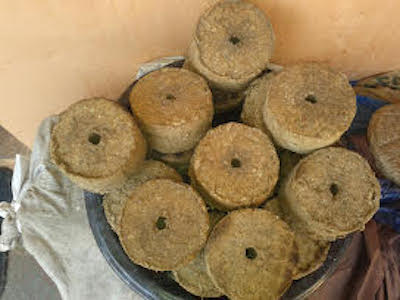Young Women Social Entrepreneurs Inspire Optimism in Sierra Leone
I landed in Freetown, Sierra Leone, the afternoon of Dec. 31, 2015. On the way to the hotel, I asked the driver of the van whether there would be any New Year’s Eve parties. He said, “Yes, everyone will be dancing in the streets saying, ‘Thank God I’m alive.’”
He was referring to the gratitude people of his country felt for surviving the Ebola epidemic that hit Sierra Leone in 2014. Just before midnight, there was a photo tribute at a New Year’s Eve celebration remembering those who had died from the disease.
The reality of Ebola is still strong in Sierra Leone: Everywhere you go there are hand washes, Purell hand sanitizers and mandatory temperature checks. And yet, the resilience and joyful nature of the Sierra Leonean people shine through.
I was in Sierra Leone with Thane Kreiner, executive director of the Miller Center for Social Entrepreneurship, to co-lead the Global Social Benefit Institute (GSBI) workshop in Freetown for 16 social entrepreneurs. Every GSBI workshop gives us the chance to work with incredible, passionate social entrepreneurs, and this one was no exception. One entrepreneur was using drones to do last-mile distribution of medicines, another working with high school kids to help them solve problems they see in their communities, among many others.
With the Miller Center’s Women Rising initiative in mind, I’d like to share two women-led enterprises from the Sierra Leone workshop that stood out as especially inspiring.

BioBriq charcoal briquettes
The first is BioBriq SL, whose founder, Jasonta Cokier, just finished high school. Despite her youth, she already has piloted her business, which is to create and sell bio-waste briquettes. She was introduced to social entrepreneurship through the Innovate Salone program, which works with youth to identify and solve social issues in their communities. While there, Jasonta decided to help tackle the issue of deforestation by reusing bio-waste she saw lying around.
Jasonta participated in the GSBI workshop to build a business model for her enterprise. She now knows that she can make and sell the briquettes; she’s done it. Her challenge/opportunity is that she has been accepted into medical school and wants to be a pediatrician. She’s not sure how she can build her business and also go to medical school. Maybe she can do both, or maybe she can hand off her bio-brick venture to others. In any case, it’s clear she’s someone who’s going to change the world for the better, as a pediatrician or entrepreneur, or both.
The second entrepreneur I’d like to highlight is Davephine Tholley, who graduated from Fourah Bay College in Freetown with a degree in civil engineering. In addition to being an engineer-in-training with the Sierra Leone Water Company, she is the founder of Bempa Plastic Recycling, which is aiming to reduce plastic waste by recycling it into pellets and using the pellets to create carpets. As in many cities in the developing world, plastic waste is everywhere in Freetown.
Davephine has proven her intelligence by getting an engineering degree, and she has demonstrated leadership qualities by being selected last year to participate in the Moremi Initiative, a leadership program for African women. Now she is busy wrapping her head around plastic and scoping out a pilot. Others have proven that making high-quality, beautiful carpets from plastic bottles is possible, and we don’t doubt that Davephine can do it, too.
Supporting inspiring women social entrepreneurs like Davephine and Jasonta is a major focus of Miller Center’s Women Rising strategic initiative, under which we are creating tools and practices that will help more women become successful social entrepreneurs. Women are the backbone of their communities, and they know the issues that need to be addressed. Helping them develop solid entrepreneurial skills might just be the best way to solve problems that are widespread in their own communities and beyond.
To quote Bella Abzug, “Women will not simply be mainstreamed into the polluted stream. Women are changing the stream, making it clean and green and safe for all—every gender, race, creed, sexual orientation, age and ability.”
Top Image: BioBriq Founder Jasonta Cokier addresses a GBSI workshop. Image credit: Miller Center for Social Entrepreneurship.
- Categories
- Social Enterprise
